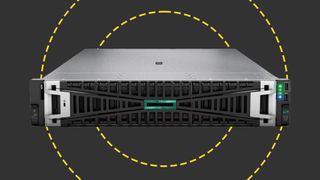Servers & Storage
Latest about Servers & Storage

How embracing flash storage helped Mississippi’s tax authority boost critical apps
By Steve Ranger published
Case study By ditching legacy systems and switching to flash storage, Mississippi’s Department of Revenue improved its backup strategy and cut restore times by more than a day

HPE ProLiant DL380a Gen11 review: A graphically great server
By Dave Mitchell published
Reviews This powerful 2U rack server combines a high GPU density with classic ProLiant build quality

Lenovo ThinkEdge SE360 V2 review: The littlest edge server
By Dave Mitchell published
Reviews A versatile and NVMe-dense edge server that puts big power in tight spaces

Delivering profitable hosting services at lower prices
By ITPro published
whitepaper How developing services using entry-level CPU platforms can help grow your hosting business

Best business servers for 2024
By Dave Mitchell last updated
Best Whether you need systems, services, or storage power, we find the server solution that’s best for your business

HPE GreenLake Compute Ops Management review: Smart cloud-direct management for ProLiant servers
By Dave Mitchell published
Reviews A natural choice for distributed businesses that want cloud-controlled server lifecycle management

Report: Power-efficient servers are the key to fully realized and environmentally sound 5G
By ITPro published
Supported Editorial 5G services ecosystem “hungry” for new sources of revenue and operational efficiencies

Revitalize your aging datacenter
By ITPro published
whitepaper The real value of datacenter modernization
Get the ITPro. daily newsletter
Receive our latest news, industry updates, featured resources and more. Sign up today to receive our FREE report on AI cyber crime & security - newly updated for 2024.





